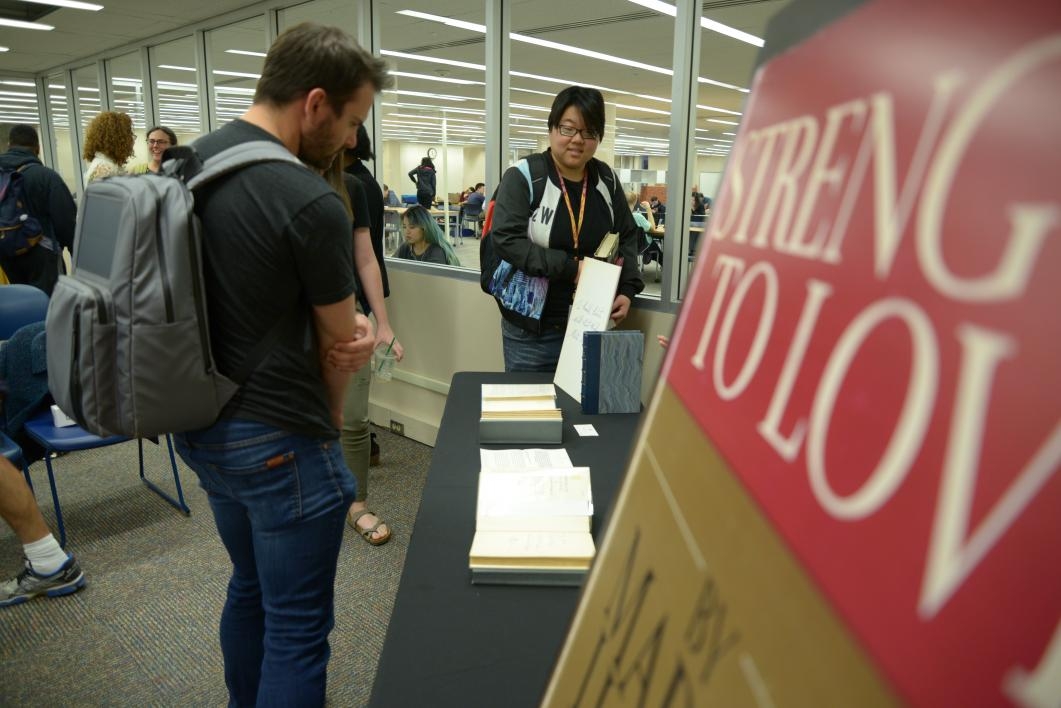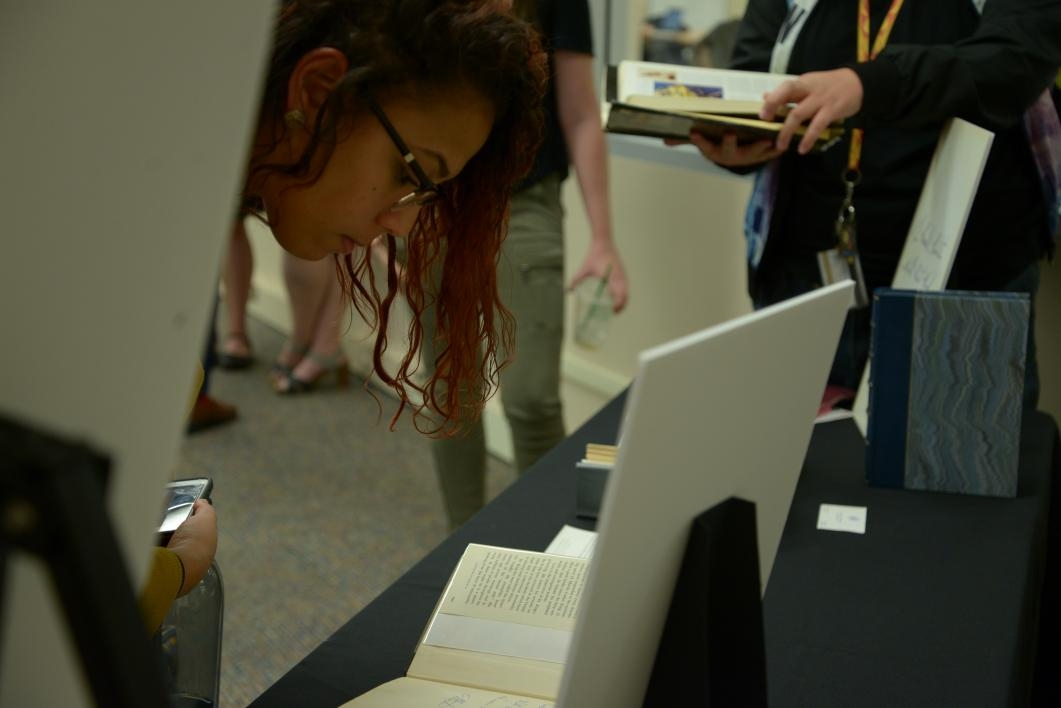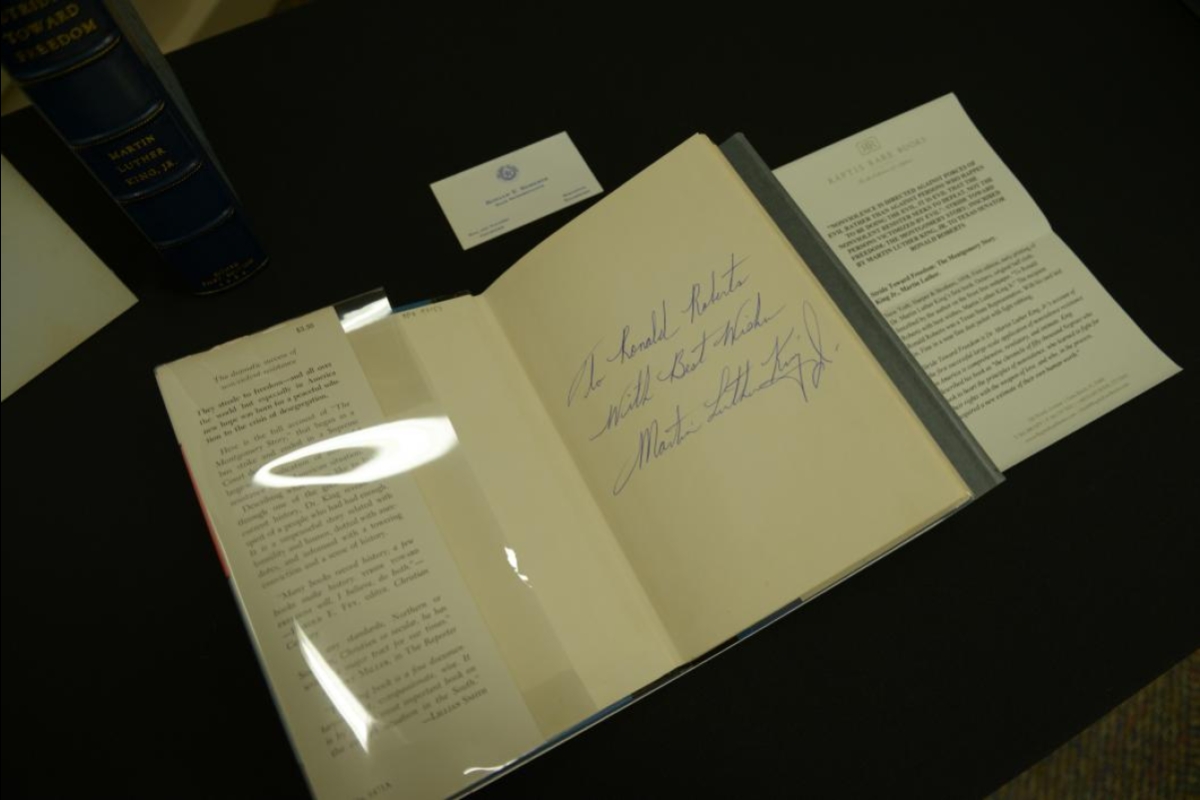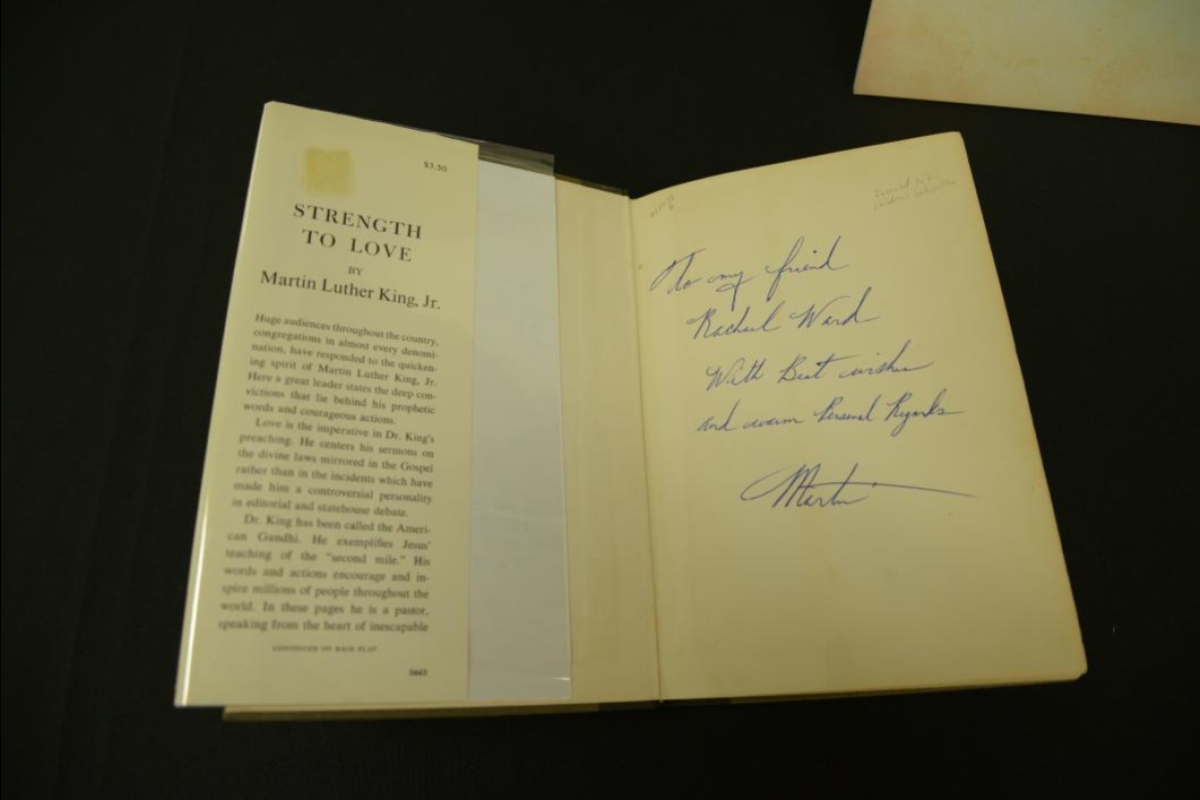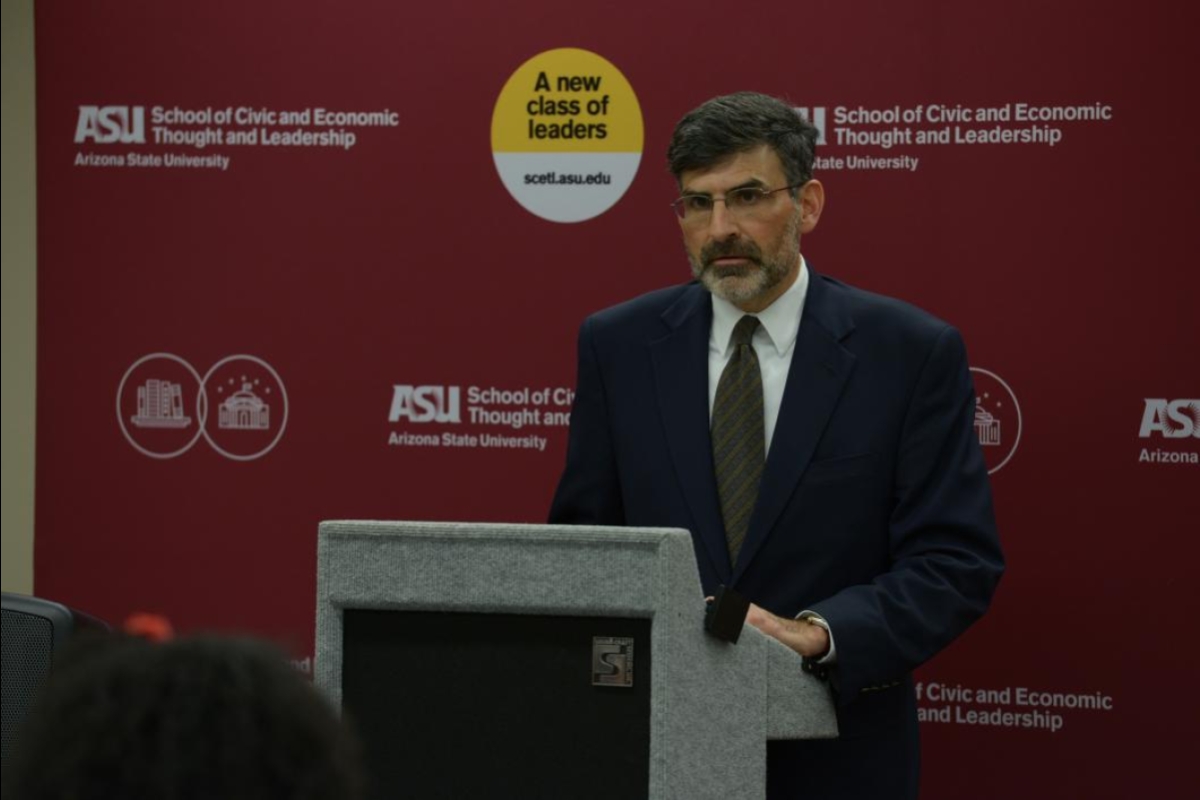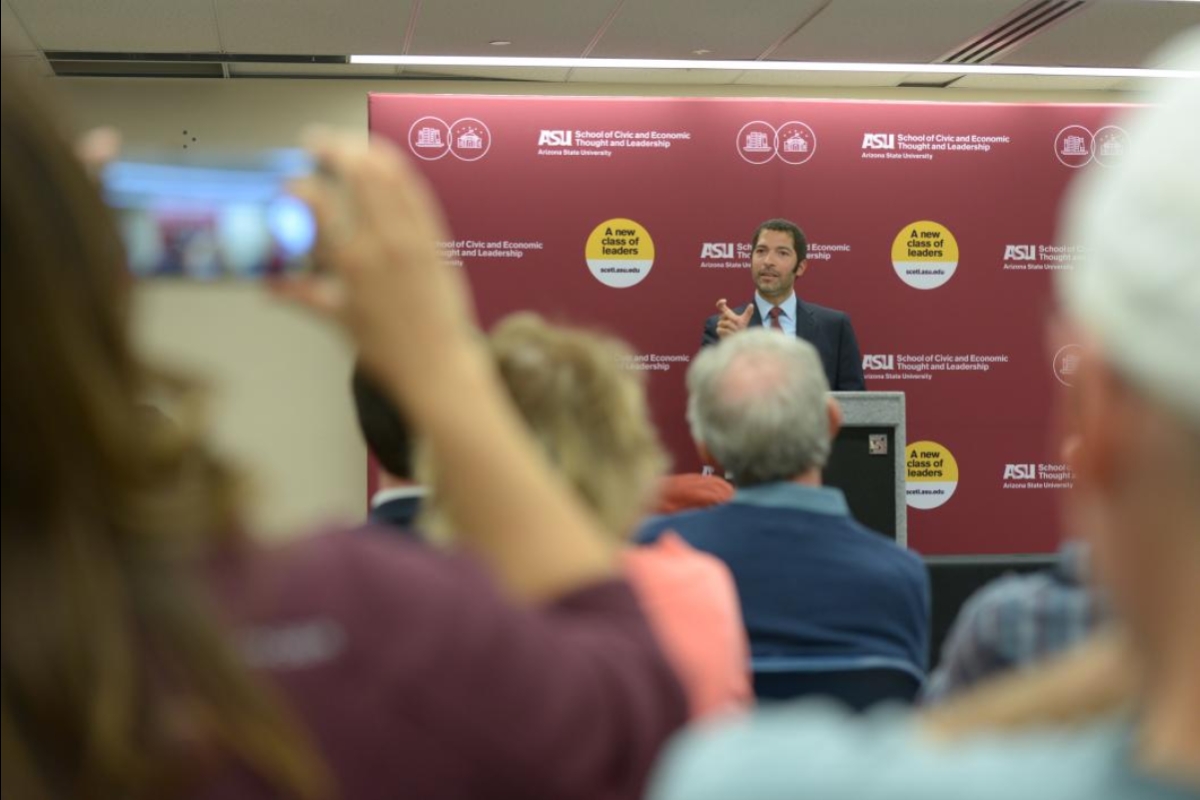ASU adds 2 signed books by Martin Luther King Jr. to archive
Historical texts to be part of wider community collaboration
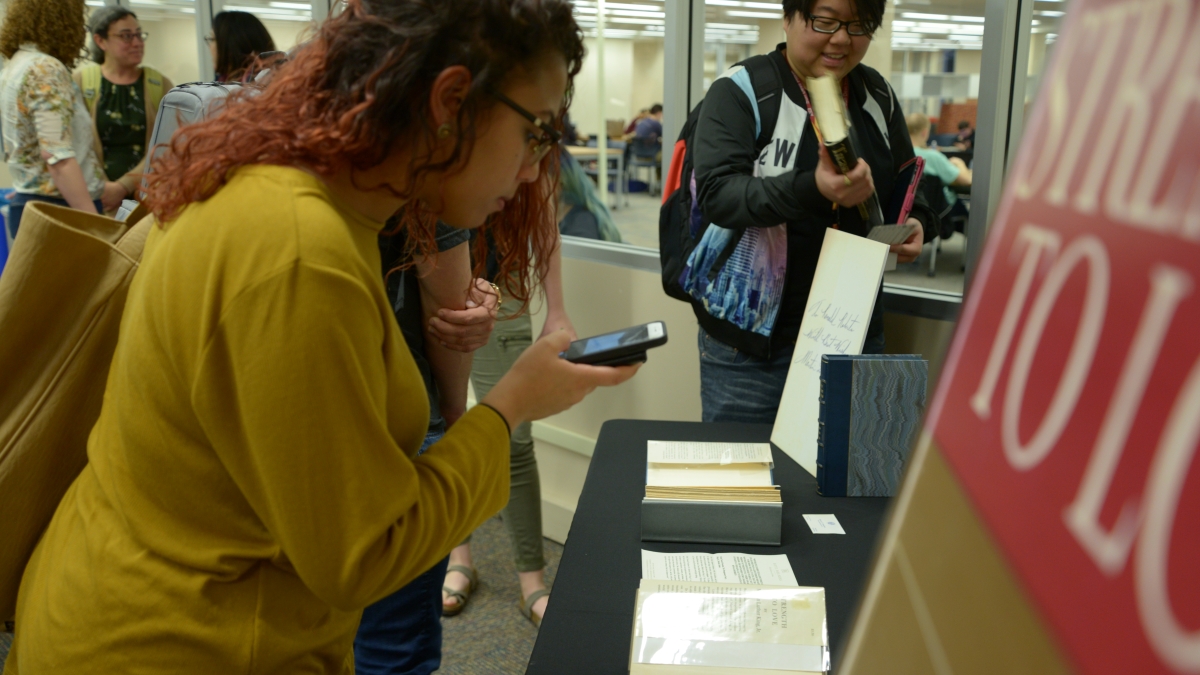
Students and faculty gather at the library to view signed, first-edition books by Rev. Dr. Martin Luther King Jr.
This month, Arizona State University added two significant, historical texts to its archive.
Under the guidance of Paul Carrese, director of the School of Civic and Economic Thought and Leadership, with funds allocated by the Arizona State Legislature and approved by the ASU President's Office, the school purchased signed, first-edition copies of "Stride Toward Freedom," Dr. Martin Luther King Jr.'s 1958 memoir of the Montgomery Bus Boycott, and "Strength to Love," a collection of his sermons published in 1963.
This acquisition is part of the school's larger project to provide ASU faculty and programs with the opportunity to educate and inspire the university community and the broader public about the extraordinary contributions of figures in American history.
According to Carrese, "each text holds a crucial place in a basic civic education for serious citizens and those who aspire to be leaders in public affairs or civil society."
To evaluate the King books and advise on their purchase, Carrese enlisted the expertise of Lorrie McAllister, associate university librarian for collection services and analysis; Matt Delmont, director of the School of Historical, Political and Religious Studies; and Keith Miller, interim director of the Center for the Study of Race and Democracy.
Carrese knew early on that he wanted to include work from King in acquisitions by the school. He said King was an extraordinary leader because in spite of injustice, he still believed in the Declaration of Independence and the Constitution, quoting them frequently in speeches and sermons.
“He demanded that American political leaders finally live up to the promises of equal justice those great documents embodied," Carrese said. "This belief in the foundational principles of our democratic republic blended with a reasonable but persistent argument for reform is an inspiring example of civic thought and leadership that our school is very proud to showcase."
While adding these significant books to the university archive is motivation in itself for this kind of purchase, Carrese — along with Associate Director of Public Programs Carol McNamara — is committed to keeping them dusted off and circulating outside of the archive through interdisciplinary public programming.
To Carrese and his team, as well as the Hayden librarians responsible for stewardship of the archive, the books are rare and valuable as historical objects, but they are most valuable when we engage with them. To that end, Carrese worked with library staff and Delmont to arrange a reception for the inaugural presentation of the books during the week commemorating Martin Luther King’s birthday.
MORE: ASU events show MLK's contemporary relevance
About 40 people gathered at Hayden Library on Jan. 17 to mark the arrival of the texts and hear from Delmont about King's legacy in Arizona. Delmont described the book acquisition as an important stage in the relationship between Arizona and King — a relationship which dates back to a speech King gave at ASU in 1964 at the invitation of the Maricopa County NAACP.
Faced with opposition from people who felt King was too controversial, then ASU President G. Homer Durham appealed to the Board of Regents by claiming that the university would be negligent in its duty to educate unless it was "engaged in examining unpopular ideas."
Delmont emphasized that King was an extremely controversial figure. His views on communism and the Vietnam War were unpopular and he was widely criticized, particularly in the last years of his life. If alive today, Delmont argues that King would not fit neatly into contemporary discourse about race and equality.
"There is something about King as a martyr that makes him a more comfortable figure to grapple with," Delmont said. "But, King should make us uncomfortable."
Delmont urged the audience to engage with the texts in their entirety — not just as memes and soundbites. Because King’s writing was intended to be delivered as sermons and speeches, extracting quotes from the larger context of his work limits our ability to understand the depth and history of his role as leader in a very long and hard-fought movement for civil rights.
Delmont described King as an effective and forward-looking leader, explaining that he was unencumbered by the short-term demands of elected public office and unrestricted by party lines. Rather than thinking in term limits, he asked his congregations and the millions of people he helped to mobilize, "Where will we be generations from now?"
Although King is arguably the most recognizable face of the civil rights movement, Delmont cautioned against honoring his legacy as an individual at the expense of recognizing the long grassroots civil rights movement that elevated him, noting that while he is an extremely important figure, a day to honor his memory would be incomplete without remembering the 250,000 black people who made their way to the Lincoln Memorial to see him speak, and the thousands of others who fought for decades to bring the movement to a head.
Delmont reminded the audience, "it’s not about him, it's about we."
If you are interested in arranging a presentation of these or other archived texts, or you would like to schedule an appointment to view the texts, email Kathy.Krzys@asu.edu.
